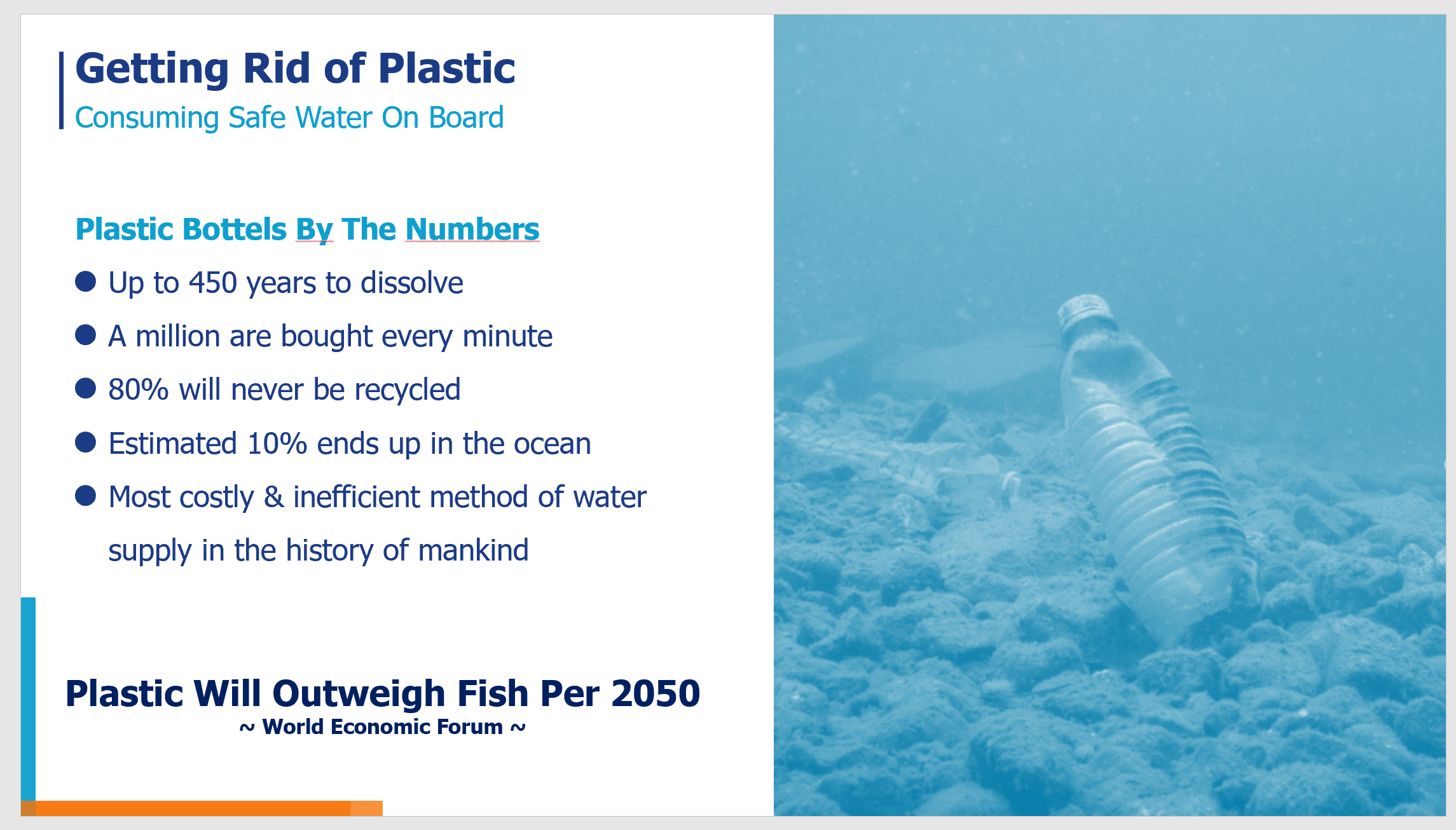
According to Wageningen University Research institute, between 5 and 13 million tonnes of plastic are lost annually from land to sea and end up as what is known as ‘the plastic soup’. Marine birds and other wildlife accidentally ingest plastic litter or become entangled.
In October 2018 the International Maritime Organization (IMO) has pledged to further address the significant problem posed by plastics to the marine environment, with the adoption of an action plan which aims to enhance existing regulations and introduce new supporting measures to reduce marine plastic litter from ships. IMO’s Marine Environment Protection Committee (MEPC) adopted the action plan, to contribute to the global solution for preventing marine plastic litter entering the oceans through ship basedship-based activities.
Hatenboer-Water, an established water expert is internationally renowned as a full-service partner in the water treatment market. Hatenboer-Water designs, constructs and supplies freshwater modules for 7000+ clients in maritime, offshore, horticulture industries as well as other land based industrial applications.
Traditionally there has been distrust for the quality of the drinking water on board, especially in Asia the (local) crew only wants bottled water, because they do not trust bunkering. Hatenboer-Water has been pledging for years for the use of water makers, so that the drinking water that is produced with them is simply drinkable, although this requires discipline to maintain and monitor the water system on board. However, owners / operators are required by law to do this anyway and Hatenboer-Water conducts risk assessments and draw up water manuals for the customer.
Hatenboer-Water sees that companies and people are getting more and more aware of the pollution problem of plastic water bottles. Due to COVID-19, clean water and hygiene on board vessels has become even more relevant at this moment. Hatenboer-Water notices a huge demand for its water filling stations.
Royal Wagenborg is one of those clients that chooses a sustainable alternative to plastic bottles. After a successful test on six vessels, the company is installing Hatenboer-Water bottle filling stations on another thirty vessels. The taps provide the crew with drinking water, making plastic bottles of water no longer necessary on board.
“Each year, around 180,000 bottles of water are used on board of our vessels,” says Superintendent Izak van Rhijn. “These bottles are made of single-use plastic, resulting in 2.8 tons of plastic waste. Although we collect our waste and deliver it separately ashore, we consider this environmental impact difficult to justify as a sustainable shipping company. Therefore we found it very hard to justify this environmental impact and we started looking for alternatives.”
In that search, Royal Wagenborg came across Hatenboer-Water’s bottle filling stations. “The bunker tanks on board contain fresh water, but after purification there is a chlorine-like taste to the water. There is a filter in the Hatenboer-Water stations to remove this unpleasant smell and taste. The result is delicious fresh chilled water that is perfectly suitable for consumption”, says Van Rhijn.
And that is not just a sales pitch, according to the reaction of Captain Van Gorkum of the Reestborg. “We got a water bottle filling station on board. The crew is enthusiastic about the good taste of the water and makes full use of the tap. Now we no longer have to carry large quantities of drinking water in plastic bottles.”
Positive reactions were also heard from the other five test vessels and checks show that the water meets all safety standards. That is why Wagenborg has decided to expand the test to another thirty vessels. “If it also suffices there, it is certainly the intention to provide all our vessels with a bottle filling station”, concludes Van Rhijn.
‘Safe Water on Board’ is indeed a good alternative for those horrible plastic bottles!